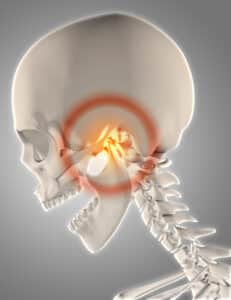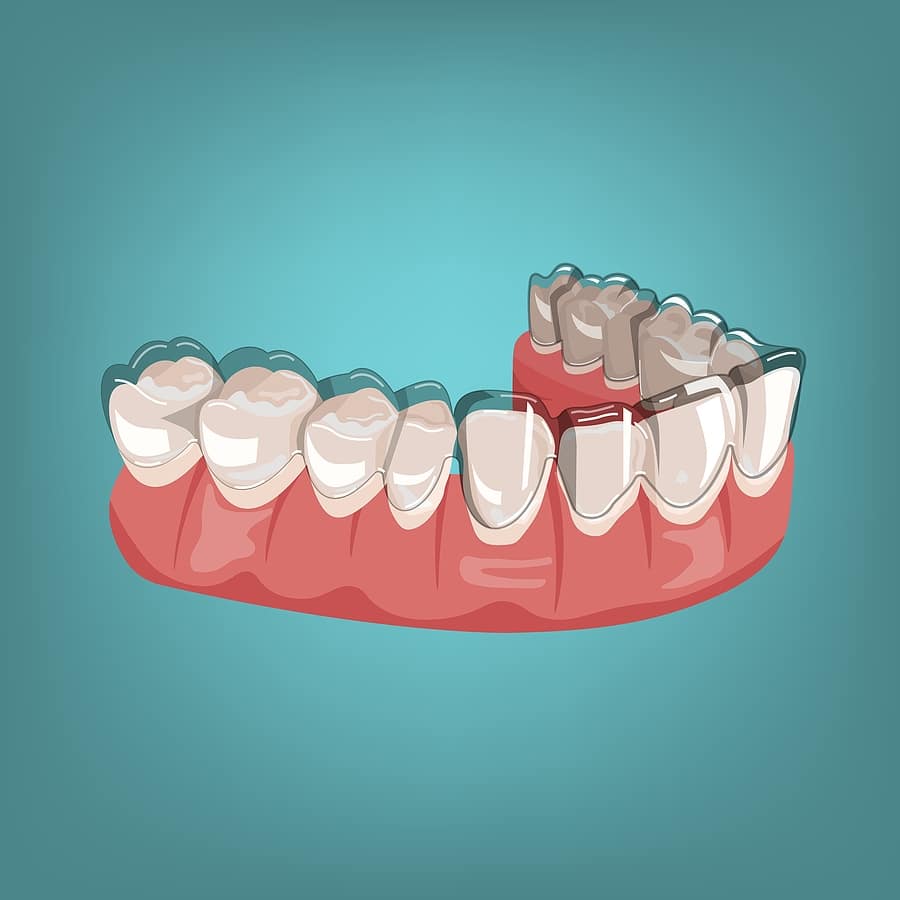TMJ (Temporomandibular Joint) disorder is a prevalent and often debilitating condition that affects countless individuals, causing persistent jaw pain, discomfort, and a host of associated issues. While many patients experience these symptoms, the most common treatments, like braces, can be a hassle to undergo. People are now asking: Will Invisalign help TMJ? Is the clear aligner system an effective alternative for those who want better comfort and discretion?
Understanding TMJ

- Persistent jaw pain: Aches or sharp pains in the jaw area.
- Headaches: Frequent or severe headaches, often radiating from the jaw.
- Chewing difficulties: Difficulty in opening or closing the mouth fully.
- Speech issues: Challenges in articulating words or sounds.
- Facial discomfort: General discomfort or pain in the face.
- Earaches: Pain or discomfort in or around the ears.
- Jaw clicking or popping: Audible sounds when moving the jaw.
Common causes and symptoms of TMJ disorder
TMJ disorder can be attributed to various factors, including:
- Teeth Grinding: Persistent teeth grinding or clenching, known as bruxism, can contribute to TMJ symptoms.
- Jaw Injuries: Trauma or injuries to the jaw area may trigger TMJ issues.
- Stress: Elevated stress levels can lead to clenching or grinding, exacerbating TMJ problems.
The impact of TMJ on oral health and daily life
TMJ can significantly disrupt daily life, affecting various aspects:
- Eating: Pain and discomfort can make chewing and swallowing painful.
- Speaking: Articulating words clearly may become challenging.
- Quality of Life: Chronic pain and discomfort can reduce overall well-being.
Invisalign: An Overview
Invisalign is a revolutionary orthodontic treatment that employs a series of clear, custom-made aligners to gently reposition and straighten teeth. Unlike traditional braces, these aligners are:
- Clear: Virtually invisible, making them a discreet choice for orthodontic treatment.
- Removable: Patients can take them out for eating, drinking, and oral hygiene.
- Comfortable: Smooth plastic aligners cause less irritation than metal braces.
- Custom-Made: Each set of aligners is tailored to the patient’s unique dental needs.
How Invisalign works in straightening teeth
Invisalign relies on a carefully planned process to achieve optimal teeth alignment:
- Consultation: An orthodontist assesses your dental needs and creates a personalized treatment plan.
- Custom Aligners: A series of clear aligners are crafted based on the treatment plan.
- Gradual Adjustment: Patients wear each set of aligners for about two weeks, gradually moving their teeth into the desired positions.
- Monitoring Progress: Orthodontists regularly assess progress to ensure the treatment stays on track.
The benefits of Invisalign compared to traditional braces
Invisalign offers numerous advantages, making it a compelling choice, particularly for TMJ patients:
- Aesthetics: The nearly invisible aligners are less noticeable than traditional braces.
- Comfort: Smooth aligners reduce the potential for irritation and discomfort.
- Ease of Maintenance: Removable aligners make oral hygiene and eating more convenient.
- Customization: Aligners are tailored to fit your teeth precisely.
- Predictable Results: The treatment plan and monitoring ensure a precise and predictable outcome.
The Relationship Between Invisalign and TMJ

Scientific studies have suggested that Invisalign may contribute positively to TMJ symptom relief by addressing teeth misalignment, which can be a contributing factor to TMJ issues. However, the results are not guaranteed, and success can depend on various factors, including the severity of the TMJ condition and individual differences.
Advantages of Invisalign for TMJ
It’s crucial to weigh the pros and cons when considering treatment options. We’ll explore the distinct advantages of choosing Invisalign for TMJ over other methods. These advantages may include lower visibility, reduced discomfort, and greater treatment flexibility.
Comfort is a significant factor in managing TMJ symptoms. The absence of metal wires and brackets, as well as the option to remove aligners for meals and oral hygiene, make Invisalign an appealing choice for those seeking relief from TMJ discomfort.
So, will Invisalign help TMJ? It’s important to understand that misaligned teeth can exacerbate TMJ symptoms. Invisalign, designed to align teeth, can alleviate TMJ discomfort by addressing the root cause of misalignment. A consultation with an orthodontist is the best way to tell if Invisalign is a recommended course of treatment for your case.
Consultation and Treatment Process
The path to exploring Invisalign as a potential solution for TMJ relief involves a structured process:
- Consultation & Treatment Plan: During your initial consultation, the orthodontist assesses your TMJ condition, discusses symptoms, and examines your dental health history. This step determines Invisalign’s suitability for your case. If Invisalign is recommended, a personalized treatment plan is created, outlining steps, treatment duration, and aligner series.
- Digital Impressions & Aligners: Digital impressions replace traditional molds for precision and comfort. Aligners, worn sequentially for about two weeks each, shift your teeth gradually. Consistency is crucial, with aligners worn 20-22 hours daily.
- Regular Check-Ups & Completion: Periodic check-ups monitor progress and allow adjustments if needed. Upon successful alignment, retainers may be prescribed for long-term stability.
Get The Sensational Smile You Deserve!
Are you experiencing TMJ discomfort? Discover the benefits of Invisalign and other popular orthodontic treatments at Smiles by Lorino with 5 convenient locations throughout Northern New Jersey.
Long Hill | Wayne | Franklin Lakes | Kearny | Belleville
Our Orthodontic Solutions:
Invisalign for Teens: Tailored solutions for your teen’s orthodontic needs.
- Invisalign Treatment: Experience the comfort and effectiveness of Invisalign.
- Metal or Clear Braces: Traditional or discreet options to straighten your smile.
Meet Our Expert Orthodontist, Dr. Robert Lorino
Dr. Lorino is dedicated to helping you achieve the smile you’ve always dreamed of. With his expertise and passion for transforming smiles, you’re in capable hands.
📞 Contact Us | Request an Appointment
Don’t miss out on the opportunity to enhance your confidence and oral health. We look forward to welcoming you at one of our five convenient locations throughout Northern New Jersey.



 Invisalign for Teens: Tailored solutions for your teen’s orthodontic needs.
Invisalign for Teens: Tailored solutions for your teen’s orthodontic needs.